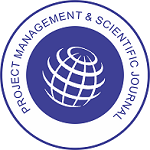Author: Ebenezer Essilfie-Baiden
Acting Director, Procurement and Supply Chain, Civil Serve, Ghana
Abstract
In Ghana, public procurement constitutes over 50% of Government budgets besides the cost of government wage bill and accounts for the largest share of government expenditure. Corruption in public procurement some-times manifests as bribery, rent-seeking, contractor-client payoffs, kick-backs etc. According to a recent study by the World Bank, Corruption costs the African Continent about $148 billion approximately 25% of its Gross Domestic Product (GDP) and usually results in the execution of shoddy contracts which have far-reaching and most debilitating effects on society as a whole. (http://ppaghana.org/documents/Bulletins/PPAE-BulletinJulAug2013Final.pdf). There is no single accepted definition of corruption, as it tends to mean different things to different people at different times, a contextual definition which basically defines corruption as the abuse of office for personal gain. According to Transparency International, corruption is the abuse of entrusted power for private gains. Corruption Watch also defines corruption as the abuse of public resources to enrich or give unfair advantage to individuals, their family or their friends. It is believed that corruption has been with human institutions for a long time. It is simply using government or institutional resources as a result of a person’s control over those resources to gain personally at the expense of the common good.
Keyword: Corruption, Procurement Cycle, Procurement Processes

